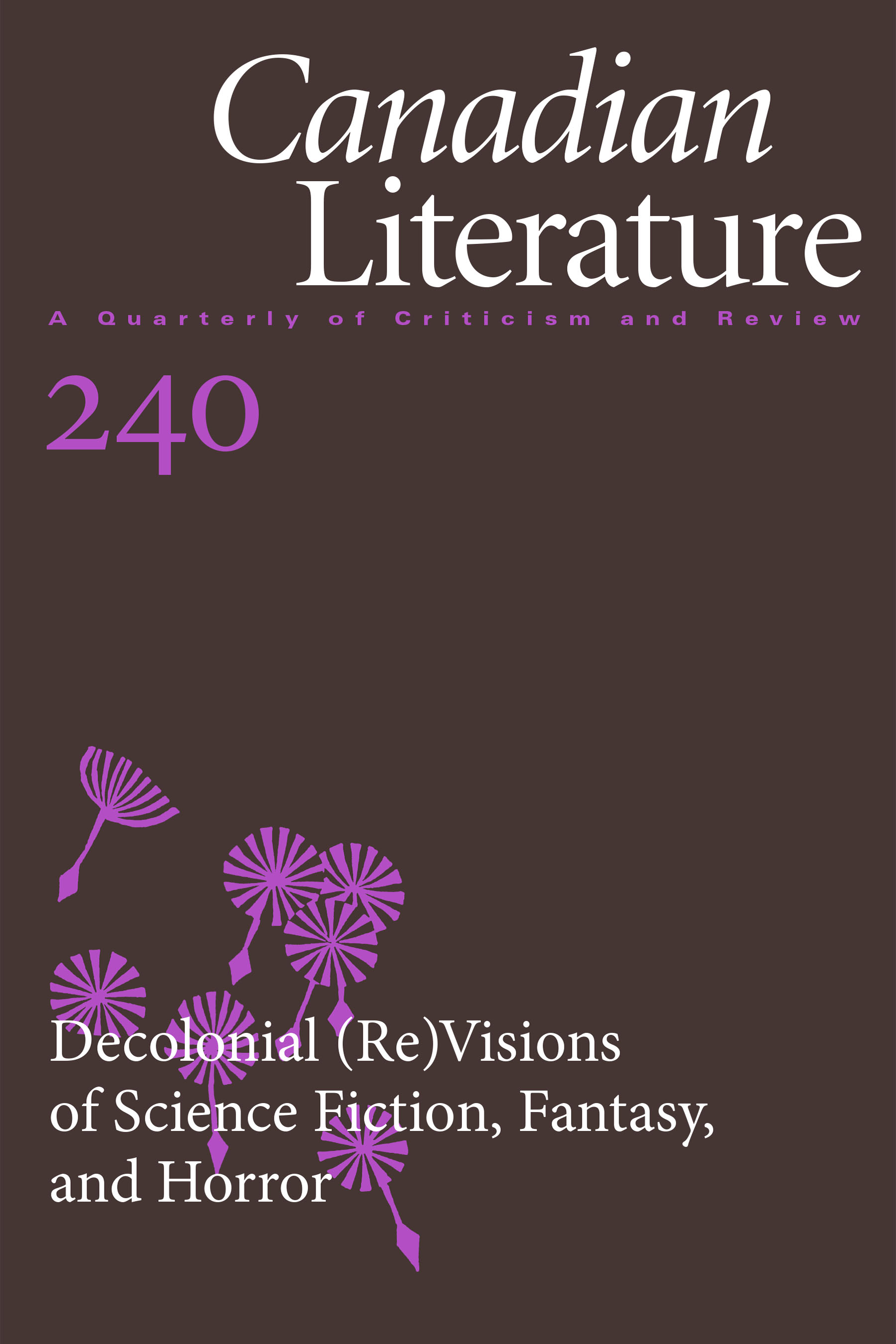Re-framing the Diasporic Subject
The Supernatural and the Black Female Body in The Salt Roads
DOI:
https://doi.org/10.14288/cl.vi240.191803Abstract
This article proposes to analyse Nalo Hopkinson's novel The Salt Roads (2003). It looks at how its intersections with gender, sexuality, and race adds new, unexplored dimensions to the spec-fic genre. More specifically, it examines how the use of the Afro-Caribbean supernatural and of the black female body in the novel, creates a redefinition of Afro-diasporic subjectivities. In many respects this novel departs from the Eurocentric concept of the diaspora and from received epistemologies in the understanding of culture and history. Instead, it creates an alternative set of routes, the salt roads, that relies on a female water spirit as unifying thread. A focus on the enslaved female black body and on relationships of solidarity among the main characters implies a subversion of the traditional heterosexual male roles that dominate works of speculative fiction. Moreover, it creates an imaginative space that redresses traditional, Western readings of Caribbean history and identity.


